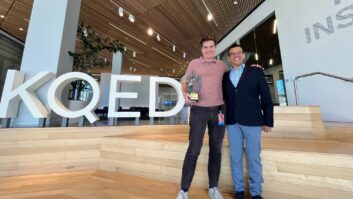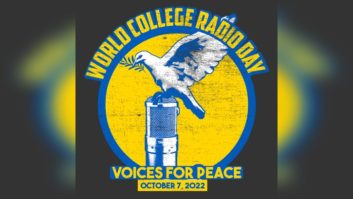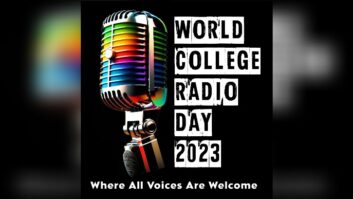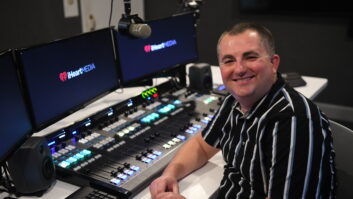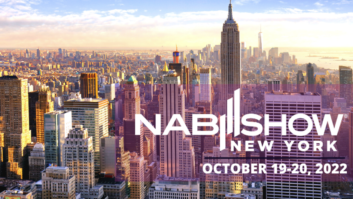IMAS Publishing CEO Carmel King and Radio World U.S. Editor in Chief Paul McLane Thursday delivered Radio World “Cool Stuff” Award trophies to National Public Radio at its headquarters in Washington. The award was accepted by NPR President/CEO Kevin Klose as well as NPR Chief Technology Officer and Vice President of Engineering and Operations Mike Starling.
NPR was selected for the special award, along with four manufacturing and technical partner organizations, by Radio World’s panel of broadcast engineering judges at the NAB convention last spring. NPR was the only broadcaster of the five so honored.
“Believing that the U.S. radio industry is entering a period of significant technological change, Radio World’s ‘Cool Stuff’ judges honored these companies for innovation in the development of multicasting, the use of radio’s existing bandwidth for multiple audio program streams,” McLane said.
The recipients of the multicasting award also include NPR’s original partners in the Tomorrow Radio project, Harris Corp. and Kenwood USA. Also honored were Broadcast Electronics and Ibiquity Digital Corp.
NPR co-launched the Tomorrow Radio initiative with support from the Corporation for Public Broadcasting.
In presenting the award, McLane noted recent uses of multicasting by stations such as WAMU(FM) in Washington and WXTU(FM) in Philadelphia, among two dozen radio broadcasters that are on the air with multicasting under experimental authorization from the FCC.
“NPR’s work has led directly to these and other announcements,” he said, saying the network’s investment in research has helped both public and commercial U.S. radio stations.
“NPR has done rigorous testing of the supplemental audio channel concept; you have invested time and effort to promote the idea to regulators and manufacturers,” McLane said.
“You set up a receiver team of stations to help stimulate the marketplace and get receivers flowing quickly. You developed the NPR Multicast seal for receivers. You are offering programmed music formats to multicasting stations, and developing others. You are exploring services such as store-and-replay features, display options and customized content services like traffic information for individual commuters.”
Klose and Starling thanked NPR employees who had contributed to the initiative. Klose also said he had recently urged FCC commissioners to “take the experimental sticker off” the multicasting concept.
McLane concluded, “We’ve not yet seen the real impact of multicasting. While there are a lot of questions ahead, I personally feel it’s going to take hold in a big way. Our judges felt that if that happens, NPR can rightly consider itself one of the big reasons.”
Radio World Delivers ‘Cool Stuff’ Award to NPR for Its Multicasting Innovation
Radio World Delivers 'Cool Stuff' Award to NPR for Its Multicasting Innovation





